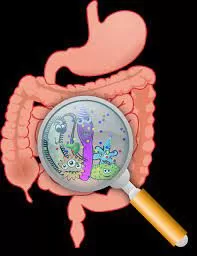Chronic pain affects millions of people worldwide, but its impact often goes beyond discomfort. Many individuals report feelings of overwhelming fatigue and a loss of motivation, making daily life a struggle. A recent study from the United Kingdom highlights that pain and fatigue are the two most significant barriers to living an active and meaningful life for those with long-term health conditions.
The Nature of Pain and Its Effects
Short-term pain serves a protective function, alerting us to injury and prompting behavioral changes to avoid further damage. For example, if you pinch your skin harder, the pain signals you to stop, protecting your body from harm. This protective mechanism is crucial for recovery, allowing time for healing when we are injured.
However, when pain persists, it can become counterproductive. Chronic pain leads to what researchers call “pain system hypersensitivity,” where the body’s pain response is perpetually on high alert. This state requires continuous effort to manage daily tasks, leading to significant emotional and physical exhaustion.
The Exhaustion of Chronic Pain
Imagine facing each day with the burden of persistent pain. Simple activities demand intense concentration and energy. Individuals must navigate their pain while attempting to engage in work, caregiving, and social interactions, which can be mentally and physically draining.
Chronic pain is accompanied by increased inflammation, disrupted hormone levels, and restricted movements—all of which contribute to fatigue. The interplay between these systems can create a cycle of exhaustion, where pain leads to poor sleep and further amplifies the pain experience.
The Need for Support and Understanding
People suffering from chronic pain often face stigma and misunderstanding, which can hinder their access to adequate care. The repercussions extend beyond physical health, affecting social relationships and economic stability. Acknowledging the complexities of chronic pain is essential for fostering empathy and support for those affected.
Modern pain management emphasizes understanding the biological mechanisms of chronic pain, promoting gradual changes and retraining both the brain and body. This approach may take months or even years, but evidence from clinical trials suggests that it can lead to meaningful improvements.
A Call to Action
For the 80% of the population fortunate enough to live without chronic pain, it’s vital to recognize the challenges faced by those who do. Offering support to friends, family members, or colleagues on their journey can make a significant difference.
In conclusion, chronic pain is a multifaceted condition that demands not only medical attention but also compassion and understanding from society. For more information about managing chronic pain, resources are available from organizations like Pain Revolution, which aim to educate and support those on this challenging path.











